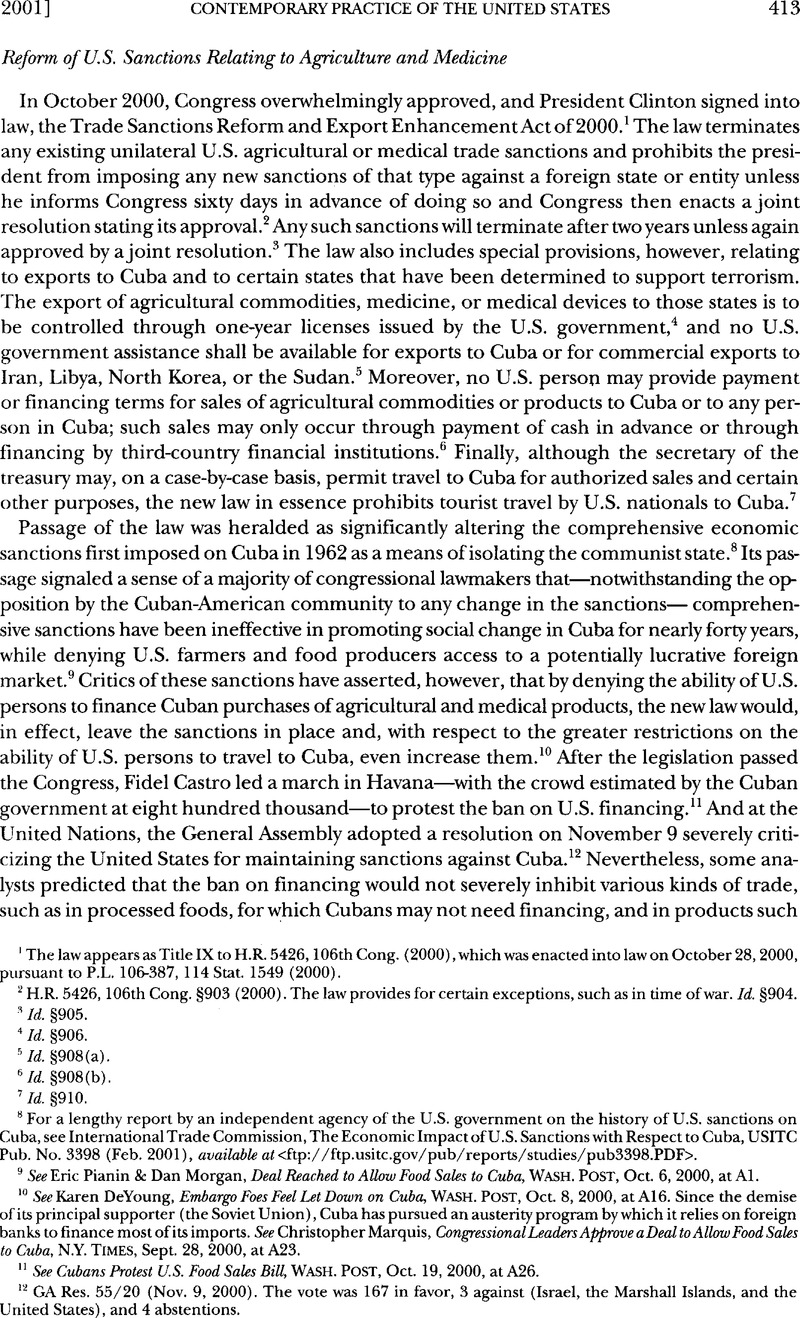No CrossRef data available.
Published online by Cambridge University Press: 10 March 2017

1 The law appears as Title IX to H.R. 5426,106th Cong. (2000), which was enacted into law on October 28, 2000, pursuant to P.L. 106-387, 114 Stat. 1549 (2000).
2 H.R. 5426,106th Cong. §903 (2000). The law provides for certain exceptions, such as in time of war. Id. §904.
3 Id. §905.
4 Id. §906.
5 Id. §908(a).
6 Id. §908 (b).
7 Id. §910.
8 For a lengthy report by an independent agency of the U.S. government on the history of U.S. sanctions on Cuba, see International Trade Commission, The Economic Impact of U.S. Sanctions with Respect to Cuba, USITC Pub. No. 3398 (Feb. 2001), available at <ftp://ftp.usitc.gov/pub/reports/studies/pub3398.PDF>.
9 See Pianin, Eric & Morgan, Dan, Deal Reached to Allow Food Sales to Cuba, Wash. Post, Oct. 6, 2000, at A1.Google Scholar
10 See DeYoung, Karen, Embargo Foes Feel Let Down on Cuba, Wash. Post, Oct. 8, 2000, at A16.Google Scholar Since the demise of its principal supporter (the Soviet Union), Cuba has pursued an austerity program by which it relies on foreign banks to finance most of its imports. See Marquis, Christopher, Congressional Leaders Approve a Deal to Allow Food Sales to Cuba, N.Y. Times, Sept. 28, 2000, at A23.Google Scholar
11 See Cubans Protest U.S. Food Sales Bill, Wash. Post, Oct. 19, 2000, at A26.Google Scholar
12 GA Res. 55/20 (Nov. 9, 2000). The vote was 167 in favor, 3 against (Israel, the Marshall Islands, and the United States), and 4 abstentions.
13 See DePalma, Anthony, Waiting at the Gate for Trade with Cuba, N.Y. Times, Feb. 4, 2001, §3 at 4.Google Scholar
14 Statement on Signing the Agriculture, Rural Development, Food and Drug Administration, and Related Agencies Appropriations Act, 2001, 36 Weekly Comp. Pres. Doc. 2669, 2670 (Nov. 6, 2000).Google Scholar